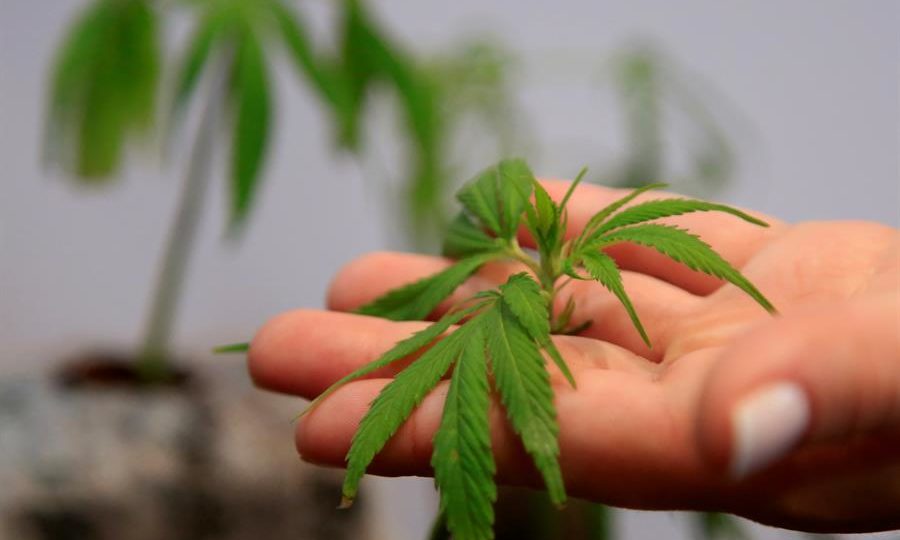
Marijuana remains illegal in most of the world, especially for recreational use. For medicinal use, the plant was legalized in different ways in 41 countries. Brazil allows use for terminally ill patients or patients who have exhausted treatment alternatives, and decriminalized possession of small amounts in 2022 by conversion of penalty. . Advocates of complete decriminalization argue that the weed has many medicinal benefits, especially in the use of its anticonvulsant derivative, cannabidiol, and that it is less harmful than other legal drugs, such as tobacco and alcohol. This month, two new studies were published regarding the risks of marijuana.
)Canadian researchers evaluated children’s exposure to edible cannabis products after recreational use was legalized in the country. Daniel Myran of the Ottawa Hospital Research Institute is the first author of this study. They identified all clinical emergencies and admissions of children in the province of Ontario between January 2006 and March 2018. The extended period includes a phase before legalization (September of 2018), just after legalization, and also after the edible products have been placed on the market (February of 2020).
Were identified
pediatric emergencies due to exposure to marijuana, 2018 % of which took place in the edibles stage, involving 122 hospitalizations. No deaths were recorded. In the literature on the risks of marijuana, it is especially worrisome the possibility of the drug triggering schizophrenia
. Reviewing studies in 2011, the Italian Paola Casadio, from the Department of Mental Health of the Local Unit (AUSL ) from Ravenna, along with three collaborators from the London Institute of Psychiatry, pointed out that so far ten studies that followed long-term people indicate that the risk of schizophrenia is up to four times higher
in marijuana users. The biggest of them, which followed for almost thirty years 50 thousand conscripts of the Swedish army, points out that this risk is up to three times greater, and can reach six times greater among the most frequent users. This month’s other study was the largest to assess the effects of marijuana’s main psychoactive substance, THC (tetrahydrocannabinol
), in more than 1,000 patients who suffered a stroke due to rupture of a blood vessel between the membrane arachnoid and the brain. Analyzing the patients’ urine, the researchers found 31 who had recently used marijuana. These people were at higher risk of having hypertension and other cardiovascular complications that made recovery after a stroke difficult. They were three times more likely to develop delayed cerebral ischemia, a post-stroke complication in which part of the brain runs out of blood, moderate to severe long-term physical disabilities, and twice the chance of dying. Importantly, these people had other drugs detected in their urine, but the researchers controlled for that factor and showed that THC alone increased the ischemic complication. The study’s first authors were Joshua Catapano and Kavelin Rumalla, from the Department of Neurosurgery at St. Joseph’s Hospital in Phoenix, Arizona. In a review of 2006, Zach Walsh, psychologist at University of British Columbia, Canada, and collaborators rated 31 articles and 50 reviews regarding the therapeutic applications of marijuana in mental health. They conclude that preliminary evidence suggests the herb has the potential to treat post-traumatic stress disorder and addiction to more dangerous drugs. When used in excess, the effects appear to be reversible—like the famous effect on short-term memory. They do not indicate marijuana for people with a history of psychotic-type mental disorders , such as schizophrenia. The studies are based on “medical marijuana dispensaries” in the United States, which administer the weed in different ways. In Florida, dispensaries are prohibited from recommending smoking marijuana, and recommend using it by vaporization, in capsules, in edibles, in the form of extracts and oils, and in topical form (creams and lotions). Another review of 2021 by Rabia Khan of the Dow University of Health Sciences in Karachi, Pakistan and colleagues considered the effects of cannabidiol on psychiatric disorders. Scientists found relevant studies, and concluded that the evidence is of moderate quality (one level below high quality in their methods) that cannabidiol has benefits for patients with schizophrenia, social anxiety disorder, autism spectrum and attention deficit hyperactivity disorder (ADHD). It could also be recommended for insomnia, anxiety, bipolar disorder, post-traumatic stress disorder, and Tourette’s syndrome, but in these cases the quality of evidence was considered low.Therapeutic applications


